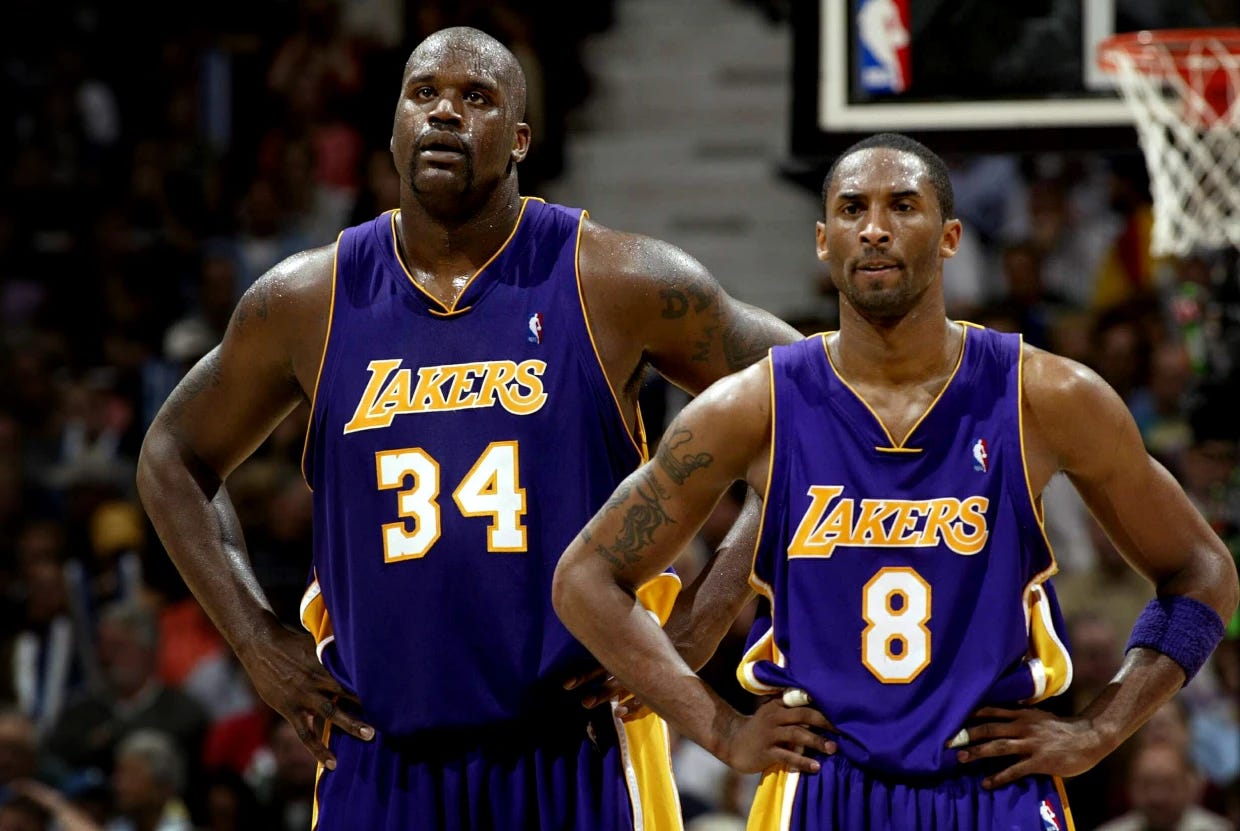Stop Playing Nice. Find Some Competition
Comfort is killing you and it’s why you need to compete
When the late great Kobe Bryant sat down with his former Los Angeles Lakers teammate, Shaquille O’Neal, on NBA TV’s “Players Only” episode, they reminisced about one of their first physical fights. It spurned from Shaq’s frustration with Kobe’s slow growth. “Everybody kept saying, ‘Be patient with this kid,’” Kobe said. “But you’re [Shaq] saying, ‘Listen, I don’t have patience. I have to win now.’” After their fight in a pickup game, Kobe said he knew from that moment that they spoke the same language. “We have to win. There’s no other option.”
The typical person might see the words, “We have to win,” as an overly-obsessive acknowledgment of one’s competitiveness. However, the person who understands the value of competition knows the “language” Kobe spoke of.
We all have different perspectives on competition. Most people see it for its entertainment or story-telling value. Competition displays our human story of struggle, perseverance, and overcoming since birth. About 300 million sperm begin the journey to fertilize a human egg, 200 make it to the egg, but only one successfully fertilizes it, according to Flo Health. The result is a beautiful life. The fact you—with all your specificities—are reading this is the result of competition.
Other people negatively view competition. For one, they may look at the world and believe there is not enough for them and you; therefore, they must take all they can get before you do, at the expense of your worth and well-being. However, multiple studies and philosophies, like this 2021 article from the Cato Institute, insist that we have enough resources for everyone. So those who rail against competition do so because they believe competition is unnecessary.
Others who negatively analyze competition see it as a mechanism that intrinsically burns people out due to unhealthy comparisons, resulting in self-esteem issues. According to this Colorado University study:
Psychologist Alice Schluger, Ph.D. suggests that competition makes people constantly compare themselves and look to others for approval. This constant comparison and search for validation is unhealthy and can lead to a negative self-image and worsened self-esteem. Competition also may not be the best motivator. According to Sander van der Linden, Ph.D., when competition is the main source of people’s motivation, they are no longer motivated when the competition ends.
But those who rightly understand competition understand that it’s not fundamentally a “you versus me,” or “us versus them” dichotomy. Competitors who only see it that way lose motivation, develop negative self-esteem, and constantly seek validation from something—a win—that can never fully validate them.
Competition is a valuable aid that helps us experience our most robust capabilities while living on this earth. The people and teams we line up against are a metric for where we are in our pursuit of personal excellence. Those we compete against hold us accountable for the focus, dedication, and effort we put into our training, mindset, and execution daily.
Competition is not primarily about how much better than you I can be. Competition is mainly about how much better can I be today than I was yesterday; how can I better show up for my family, students, athletes, coworkers, and community today than yesterday; how much better can I show up for myself today?
Competition can be as simple as making it through the day to kiss your children goodnight. Competition is as essential as ensuring we do everything necessary to protect ourselves, our families, and our communities. Losing in these instances is not an option. Like Kobe and Shaq, we have to win the day. Competing against others is just practice for competing in life.
Those who reach the pinnacle of competition—a win, a championship, a personal best—and lose motivation when the competition ends are not competitive. They are on a journey of acquiring outside validation and will be left gathering the pieces of their broken, fragile ego.
After Kobe and Shaq’s interview, Shaq admitted he was upset when Kobe won his fifth championship—one more than Shaq. Kobe admitted his goal was to get at least one more than Shaq after the two split. They laughed about it, but their sentiments were solemn. They wanted to be the best because being the best was the best version of themselves.
Today, I’m taking our sprinters on a “mentality mile” competition run. I got the idea from Olympic 200-meter Gold medalist Gabby Thomas and what they do at the beginning of their training season for a “gut check.” I’m running the mile with and against them. One of our sprinters asked me, “Is there a certain time we need to run?” I replied, “Just don’t lose to me. And if you can’t beat me—which I don’t think any of you can—don’t be last and don’t walk.”

Like Kobe and Shaq, I hate losing. Not because losing invalidates me but because a loss pushes me to be better. Losing makes me believe I have yet to reach my physical and mental limitations. So I want to try harder. And when I win, I strive to maintain or exceed that level of intensity for as long as I can.
In a world where it’s easy to settle for comfort and mediocrity, embracing competition can be the catalyst that drives us toward our true potential. It’s not about being better than others but about relentlessly striving to be better than we were yesterday. Every day presents a new opportunity to compete—not just against others but against our limitations, doubts, and complacency. By choosing to compete, we challenge ourselves to rise to new heights, discover what we’re truly capable of, and continuously refine the best version of ourselves. So, take a page from Kobe and Shaq’s playbook: find your own “mentality mile,” and run it with everything you’ve got. Compete every day—not for validation, but for the satisfaction of knowing you’re living your life to its fullest.





